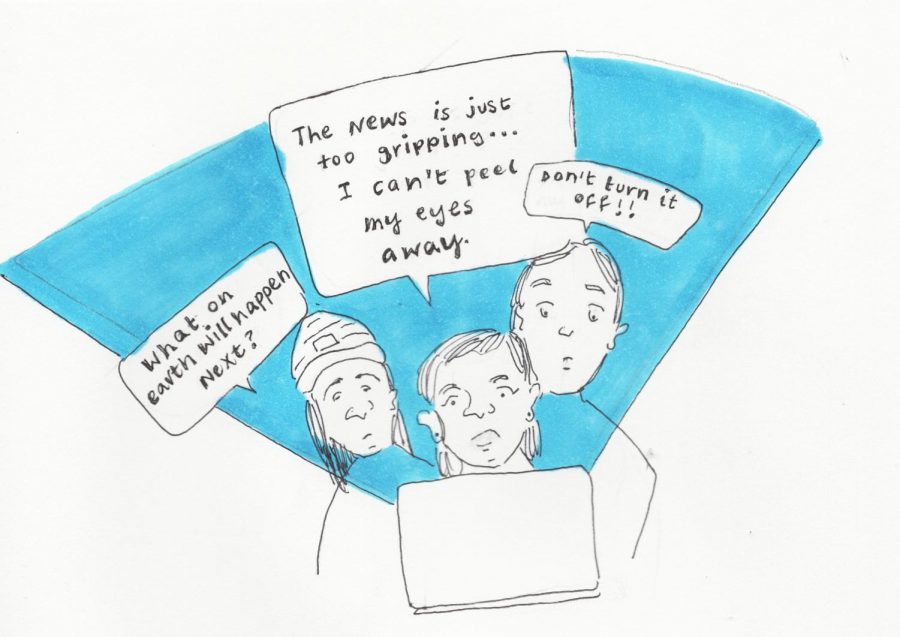Hopelessness shouldn’t be part of the news
January 26, 2019
Over winter break, I received a 23andMe kit. I thought I would just spit in a tube and wait for my ancestry results.
Apparently these kits include a lot of warnings about life, including your risks for untreatable diseases.
“Learning that you have a genetic risk factor for a disease can be difficult and it is important to think about what this type of information could mean for you,” 23andMe’s customer care page states.
When I looked into additional reports for Alzheimer’s or Parkinson’s disease, it told me the following:
“Some of the reports below are about serious diseases that may not currently have an effective treatment or cure … If you tend to feel anxious or have ever been diagnosed with anxiety or depression, you may have more emotional difficulty with these reports.”
At first I was confused as to why people would want less information, but I realized something.
I was afraid of unavoidable diseases that could cut my life short, the same way I actively avoid reports of genocide and terrorism around the world.
In my mind, I had nothing to gain by learning about the atrocities people faced when there was nothing I could do about it.
I can track my representative’s campaign finances, which will help me decide my vote in the next election.
However, me discovering that President Donald Trump hosted a banquet of greasy food is probably not as useful.
There’s an endless stream of less newsworthy articles, with every news outlet covering whatever is currently trending, whether it’s important or not.
Trump invited the Clemson University football team to the White House Jan. 14, where they celebrated their NCAA championship with piles of burgers.
Photos were shared and it went viral. Everyone was laughing at Trump’s lack of class and thought about whether athletes should be eating fast food.
It’s a unique event to take place, I can appreciate that, but leave the jokes to social media.
Otherwise, we get pieces like the Jan. 15 Washington Post article where a journalist uses photographic evidence and price charts to calculate the quantity of fast food present and its cost.
To remind you, our government is shut down, Brexit is ripping the British Parliament apart and climate change still isn’t a universal fact.
But sure, let’s break down how Trump ordering a ton of burgers will cause “democracy to die in darkness,” to paraphrase The Washington Post’s slogan.
Feel free to enjoy whatever nonsense comes out of our government, but please remember that newspapers are supposed to give us the truth, not entertainment.
For your own sake and that of anyone trying to stay informed, try limiting how much “breaking news” you consume.









Zoe • Jan 26, 2019 at 10:54 pm
Really liked this